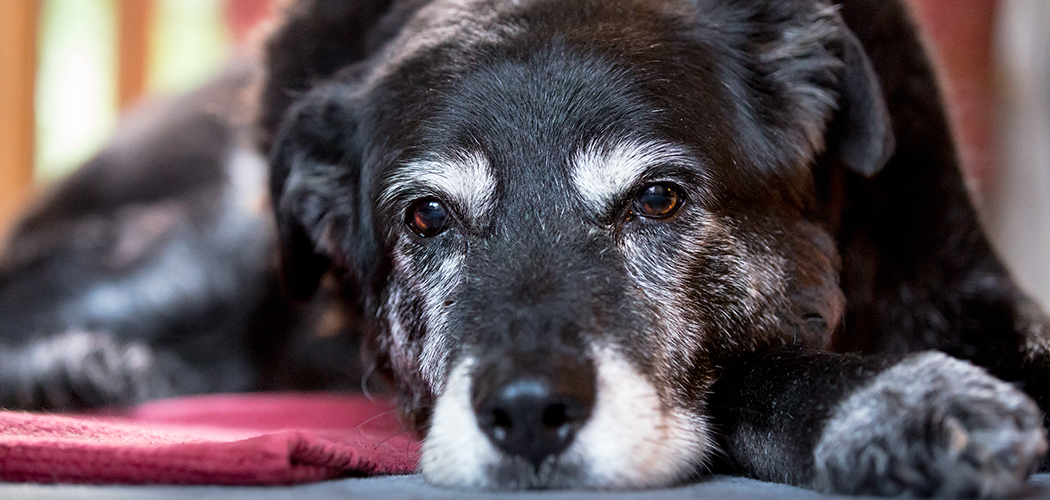[title subtitle=”words: Marla Cantrell”][/title]
For Anita
Out my back window, I can see the dreary light of winter, the tufts of grass gone to gold, the rose vines on the fencerow brown and tangled as a lady’s uncombed hair. It’s the tail-end of February, but still, all that brown. All that winter.
In January I had a dear friend die from that old devil flu. I didn’t go to see her in the hospital, even though I loved her mightily. You get to be old, you get to be cautious. After Eloise passed, I stayed put in my house for a full three weeks. Unplugged my phone from the wall. Stopped taking in the mail. Every sunrise was a heartache. Every sunset another defeat. I didn’t talk to anybody except for my rickety dog with his bad temper and shaky legs.
I like to tell people I don’t love that dog, but I do. I tell him stories about my dearly departed husband, Gus. I tell him what Gus’s hand felt like on my cheek. The rough pad of his thumb, the split in his thumbnail that never healed. When he rubbed your cheek for too long, it felt like you’d been worked over by a gunny sack.
This morning, I looked at Festus the dog, and I said, “What I wouldn’t give to feel the scrape of Gus’s hand on my weary old face,” and Festus bared his teeth, but still I couldn’t get mad at him. The temperature will rise to seventy degrees after a week of highs in the low thirties, so I’m taking him for his checkup at the vet, something he finds undignified and, I’m guessing, unnecessary.
Festus growls at me a lot now, even when I’m handing him a doggie bone, a habit the vet said could be a sign of dementia. “Who can tell if a dog has dementia?” I asked in that room that smelled like bleach and dog pee, and the vet said real cocky like, “Well, Miss Edith, me, for one.”
No one ever used to talk to me like that.
Me and Festus wobbled to the car after paying the too-high bill, Festus losing his mind over a fluffy white dog with a flagpole of a tail. “You can’t be acting like a crazy person,” I said to Festus, but by then he’d calmed down, climbed in the front seat, and was looking out the window like I’d offended him somehow.
We drove through the Wendy’s, parked in their blacktopped lot, and shared a cheeseburger, something the vet and my primary care physician frown upon. I gave Festus a chunk of meat and said, “Life’s too short, buddy, to worry about every little thing.”
Festus inched over to me, laid his graying head on my lap for a second. That’s what I live for, those moments of concern from the dang dog. I gave him a fry, and then two, and before I knew it, I was crying like the first runner-up in the Miss America contest after the curtain drops.
Kindness just crushes me.
Eloise is buried on the border of Fort Smith, Arkansas, and Arkoma, Oklahoma, in a cemetery where all the headstones are flat and the same. I only swerved off the road once while driving there, a triumph these days. I fear my time behind the wheel is coming to an end. I know when I get there, there will be a little handwritten marker at her grave, one that will get replaced by a flat bronze plaque that will have her dates on it if her family will foot the bill.
After I pulled my old car over, I attached Festus’s leash, and walked my old dog to where my best friend lay.
On the way, Festus sniffed the ground, the pancake-flat headstones, the pine tree that was the only green I could see around. And then he sat at Eloise’s grave like a pedigreed pup from that Westminster Dog Show, kind of dignified and at attention. Sometimes Festus amazes me. I looked at the lumpy dirt that mounded on top of my friend, the decaying flowers that sat in three metal vases.
“Hey, there, Eloise,” I said and looked around for a sign from Heaven. But the ground didn’t move, a spirit didn’t appear. “Maybe you’re not talking to me, hon. I wouldn’t blame you.”
Festus looked at me. I cleared my throat. “The flu,” I said, and shook my head. “Scares me half to death.” I smoothed my hair, understanding the weight of those words, the way I’d survived the winter and she hadn’t. If she were here, she’d laugh at me, point out the irony of what I’d just said. Oh, how I wish she could!
But the silence that followed was a loud thing, a siren that rang, a fire alarm. I shifted from foot to foot, and when I did the wind picked up, so I held my pink cardigan together at the collar.
It was that time in the afternoon when light turns to gold, even in this land of soil and sorrow. “In China,” I said, “they hang wooden coffins on cliff ledges. I don’t remember why. But you can see them if you look up in places, the boxes of the dead pinned to shafts of rock.”
Festus cocked his head. If he were a person, I’d say his eyebrows were knitted together.
“In Romania, they paint the headstones blue and yellow and purple. Happy colors. Again, I don’t know why, but wouldn’t that be something to see?”
A trio of birds chirped in the pine tree, and I stopped and listened. Festus lay down, his head on his paws and dropped off. He used to chase birds, back when he was more dog than old man.
“You always smelled like magnolia blossoms and new rain, Eloise. Even when we’d been working in the fields all day and I smelled like a hobo a month removed from a tub and soap.”
Festus was snoring by then, his old ribs showing beneath his once-black coat. I looked at his graying snout, the floppy ears that used to seem bigger than the rest of him when he was a puppy. I felt the loss of Gus and Eloise in the pit of my stomach. I felt as if I needed to hold on to Festus forever and ever.
Tears were stinging my eyes, closing my throat. I raised my hand. “Enough!” I said. “I’m going on like one of those soap operas you and me used to love so much.” I smiled, remembering. “Guiding Light. The Secret Storm. As the World Turns. Now that was TV. And nobody really died. They’d just come back as their own twin or a cousin in a bad wig.
I looked around at the headstones that seemed like bronze envelopes ready to be delivered to God. “I wish it was the same here,” I said. “I wasn’t there when you passed. I doubt you would have known it if I was, but that doesn’t change how sorry I am.”
I tugged on Festus’s leash, and he rose, sleepy as a truck driver after a three-day run. “We’ll bring flowers next time,” I said, and Festus lumbered up, growling while he did it, and then lifted his leg before I could stop him.
“Well,” I said, when Festus finished. “Sorry about that, too, Eloise. Festus is just a dog being a dog. Nothing much we can do about that.”
In the car, Festus nosed through the Wendy’s wrappers, licking off a splotch of catsup that remained. At home, we turned on Family Feud, a silly show, but happy. Sometimes you need to get lost in somebody else’s happiness.
After Gus died, I found where he’d hidden his Marlboros, and a bottle of whiskey about three-fourths gone. Gus was a deacon in the Baptist church, sworn not to drink or smoke or cuss or gamble or cheat on his wife. For a while, I wondered what else I didn’t know about Gus.
But then I thought about my own secrets. Boxes of Russell Stover candy lived in my underwear drawer, and even my sugar diabetes couldn’t keep me from raiding it about once every two weeks. If I could name the sin I was committing, I’d call it gluttony. I lied to Gus a lot. Not about anything important. Just what I’d had for lunch that day, or that I’d spent the afternoon with Eloise when I was supposed to be sorting clothes at the church thrift shop. I like lying, if you want to know the truth.
Eloise had secrets too. She’d had a baby when she was fifteen, giving him away, and she’d never tried to find him. She’d had a boyfriend when her husband was going under with the Alzheimer’s. Even so, I knew her heart as well as I did mine. We are all legions upon legions of trouble. We are all legions upon legions of goodness and light.
Try to sort it out, and you’ll go mad.
I was lying in bed with Festus while I was thinking about Eloise and Gus, the two loves of my life, the two people I could say understood the workings of my feeble heart. Festus was snoring beside me, and his legs were jerking every now and then. Maybe Festus understood me too, in his own way.
At the stores and in restaurants, the workers call me honey now. They call me sugar. They make me want to spit. You get old, and suddenly you’re treated as if you’re simple when you’re the most complex you’ve ever been. Eloise used to carry a cane painted in a leopard print. She wore a wiglet that made her hair look big and young. She read books about human trafficking and art theory and everything Malcolm Gladwell ever wrote.
She was smarter than anyone I knew, but she got old, and everyone forgot.
Last year, Eloise convinced me to celebrate the Day of the Dead, something that caused my Baptist heart to shiver. “It’s as mainstream as Christmas in Mexico, and just as happy,” Eloise said. “The belief is that if you set up this party right, there’s a chance Gus will show up again. Don’t you want to try, Edith?”
We lit candles. We put up his picture. I made his favorite meal, roast and carrots and potatoes, and put it on a platter right by his photo. We waited and waited and waited, and finally, Eloise went home.
I’ve never been sure that he crossed that great divide to see me, but that night in bed, I smelled his particular scent of sweat and the Alberto VO5 he used in his curly auburn hair. The next morning, I had a small rash on my cheek, as if he’d used that calloused thumb to touch my face for a little too long.
People used to look at Eloise and see an old lady, a car with too many miles to bring much of a price. They look at me now and see the same. But we were coal turned into diamonds, the two of us. Coal turned into diamonds even if no one else could see. And my word, how long and bright we sparkled!




